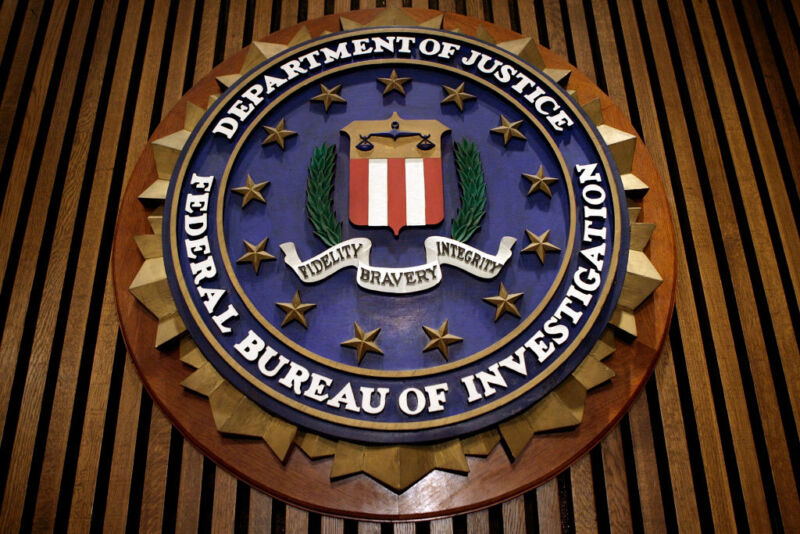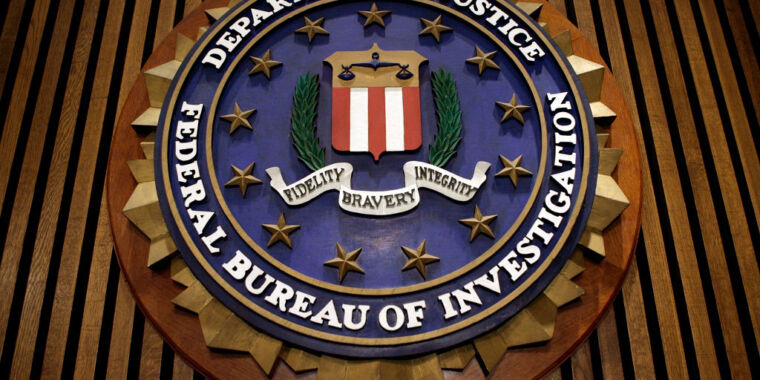
The FBI is not supposed to use its most controversial espionage tool to spy on emails, text messages and other private communications of Americans or anyone in the United States. However, that didn’t stop the FBI from searching more than 280,000 U.S. persons in 2020 and 2021, according to new revelations. U.S. Senator Ron Wyden (D-Ore.) described the searches as “shocking abuse.”
Among the most concerning so-called backdoor searches of Americans were revelations that the FBI conducted more than 23,000 searches for people involved in the storming of the US Capitol, 19,000 for political campaign donors, and 133 for protesters following the police killing of George Floyd. The deputy director of the Security and Surveillance Project at the Center for Democracy and Technology, Jake Laperruque, said “these latest revelations should set off alarm bells throughout Congress,” and in a statement urged lawmakers to FISA Section 702 not to be re-adopted at the end of this year — when it expires — without a “complete overhaul.”
“The systematic misuse of this no-warranty surveillance tool has made FISA 702 as toxic as COINTELPRO and the FBI’s misuse in the Hoover years,” Laperruque said, while his group’s press release noted that the court’s verdict ” confirmed the worst fears for civil rights and civil rights”. advocates of freedoms.
“We now know that the FBI, already under scrutiny for a litany of past compliance violations involving Section 702, engaged in inappropriate searches of U.S. communications targeting political activity and actors,” the press release said.
These revelations came to light after a heavily redacted court opinion — ruled in April 2022 by the U.S. Foreign Intelligence Surveillance Court (FISC, aka FISA Court) — went unclassified again last Friday. It described the FBI’s “pattern of conducting broad, suspicious” inquiries and confirmed that Section 702 compliance issues “have continued to crop up.”
The FISC order prompted the FBI to implement “technological and training responses” that seemingly led to a “sharp decline” in unauthorized searches of US data from December 2021 to November 2022, according to a press release from US Representative Darin LaHood (R-Ill.). This is due in part to mandatory training that the FBI told the court had a 97.5 percent completion rate as of February 2022. Anyone who did not complete the training reportedly lost access to Section 702 queries, the FBI told the court. In the future, FBI employees will be required to undergo annual training that includes a pass/fail test.
As the FBI continues to assess compliance issues, the FISC presiding judge who wrote the order, Rudolph Contreras, said that “perfect implementation is unrealistic” and more reform may be needed.
“Compliance issues with the FBI’s search of Section 702 information have proven to be persistent and widespread,” Contreras wrote. “If they are not substantially mitigated by these recent measures, it may become necessary to consider other measures, such as substantially limiting the number of FBI personnel who have access to unminimized Section 702 information.”
Investigating the FBI’s many missteps
LaHood is leading a bipartisan task force charged with proposing Section 702 reforms “to help discourage abusive behavior by the FBI” by conducting a “thorough and comprehensive review of FISA” and reviewing the FBI’s “missteps and improper actions.” ” to deal with.
Contreras’ opinion described some of these missteps as the FBI “often” breaking interrogation standards by accessing information about Americans and sometimes not removing that information once it was discovered.
Some FBI employees claimed they couldn’t remember why they performed some of these inappropriate searches. Others argued that questions about Black Lives Matters protesters were accurate simply because they had been arrested. Staff also said questions about people storming the US Capitol were appropriate, as these people were generally seen as a threat to national security. Perhaps most disturbing, an FBI employee had to be immediately retrained after admitting that he had seemingly concealed many incidents of abuse by always including questions as if no American persons were involved, even if “the facts stated otherwise’.
The court disagreed with all of the FBI’s efforts to legitimize the inappropriate searches, but also affirmed that the current process is generally sufficient to protect private information about people in the US.
With regard to threats to Fourth Amendment protections, Contreras wrote that the FBI’s current interrogation standards are also adequate, but clarified that “if the scope and pervasiveness of FBI violations continued unabated, it would in the future be subject to greater legal and Fourth amendment would cause problems.”
“There is a point where it would be untenable to base adequacy findings on long-promised but still unrealized improvements in how the FBI requests Section 702 information,” Contreras wrote.
LaHood has said his task force does not expect Congress to re-enact Section 702 unless more serious reforms are enacted.
“Without additional safeguards, a clean reauthorization of 702 is a non-starter,” LaHood said in its press release.
Ars could not immediately reach the FBI or LaHood for comment.
In his statement, Wyden said he was “disappointed with the extent of redactions” in the FISC opinions, and said the Director of National Intelligence (DNI) should “educate the public about how the government and the FISA court law.”
“There is important, classified information about how the administration has interpreted Section 702 that Congress and the American people need to see before extending the law,” Wyden said.
Laperruque agreed with these criticisms, telling Ars that “we’ve made great improvements to the FISA court over the last decade, but we need to build on that because serious problems remain.” Most critically, Laperruque told Ars that “the government has been able to block disclosure to defendants when FISA 702 is used and invoke standing and state secrets to block litigation on procedural grounds and prevent FISA 702 from being heard in court on its contents are discussed.”
“That has to change,” Laperruque said.

